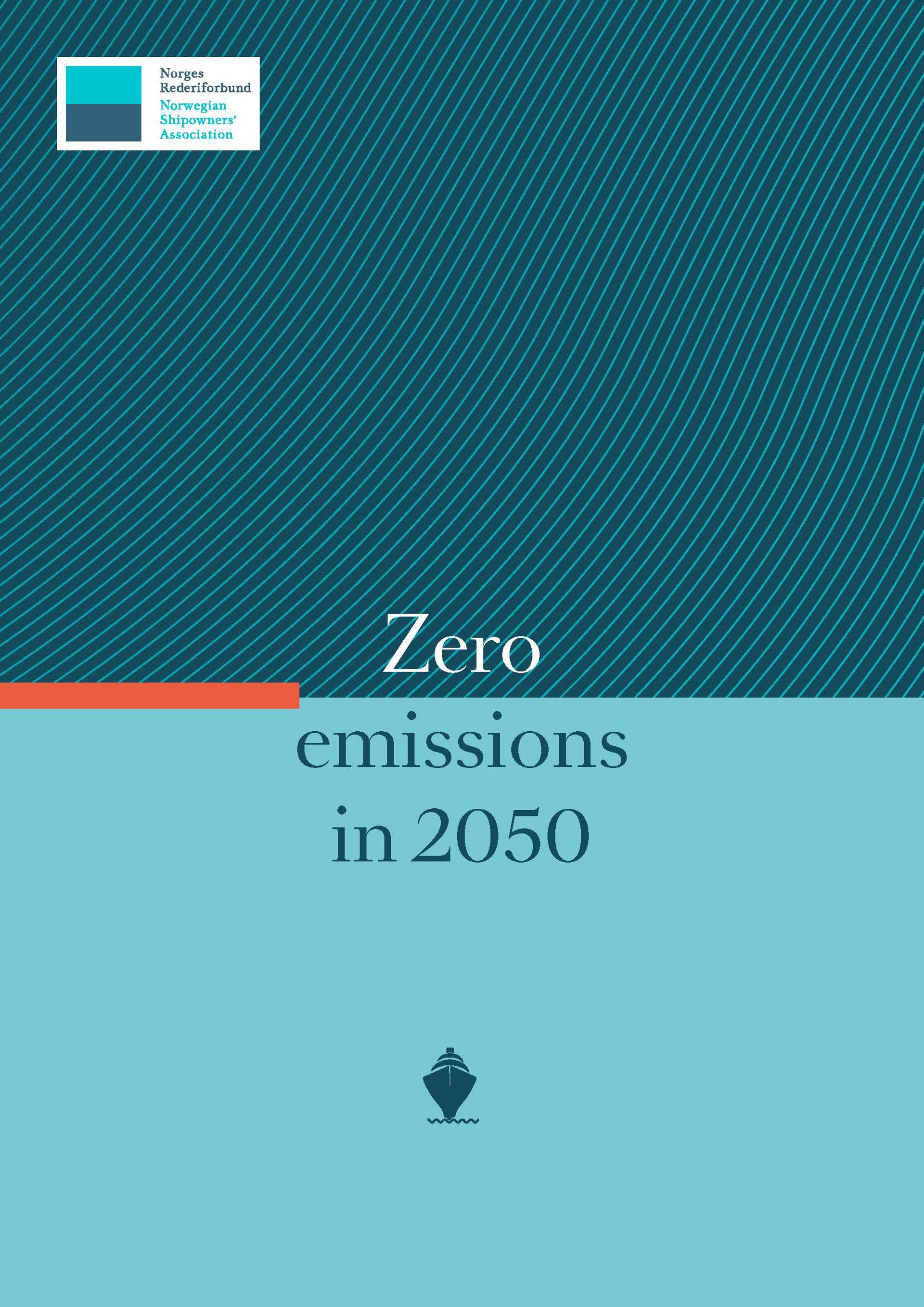Climate and environment work at the The Norwegian Shipowners’ Association
The sea route is the most energy-efficient option for transport and carries approximately 80% of world trade. Shipping currently accounts for about 3 percent of global greenhouse gas (GHG) emissions.

The Norwegian Shipowners’ Association believes it’s possible reach the world’s climate goals while also realizing business opportunities for Norway as a maritime nation. We are intent on working out the necessary measures, promoting solutions and contributing to transparency through reporting.
The Norwegian Shipowners’ Association supports the Paris Agreement’s aim to achieve climate neutrality by 2050. In Spring 2020, we launched our climate strategy, which centres on four ambitious goals
Zero emissions in 2050
Norwegian Shipowners’ Association members will cut their greenhouse gas emissions by 50 percent per unit by 2030 compared to 2008.
Norwegian Shipowners’ Association members will only order vessels with zero emission technology from 2030.
Norwegian Shipowners’ Association members will have a climate neutral fleet from 2050.
The Norwegian Shipowners’ Association will strive for an international ban from 2050 on fuel that is not climate neutral.
Contact us about the climate strategy
National activities
The current government of Prime Minister Jonas Gahr Støre has set a goal in its ‘Hurdal Platform’ to cut emissions in Norway by 55 percent by 2030 compared to 1990. The Norwegian Shipowners’ Association follows closely the Norwegian Parliament’s work on introducing new climate measures.
In our view, two of the most important measures are a national CO2 Fund and Carbon Contracts for Difference (CCfDs).
CCfDs contribute to reducing the price gap between conventional fuels and more climate-friendly alternatives through the state covering the differential amount.
When shipping is incorporated in the EU’s Emissions Trading System (ETS), new funds paid in by Norwegian shipping companies will contribute to increased earnings for the Norwegian government. These funds should be directed into a CO2 Fund to support technology development and investments in CO2 reduction measures.
A CO2 Fund can be built on a similar model as the existing NOx Fund, or the mandate of the NOx Fund can be extended to cover investments in CO2 reducing measures.
Exports and offshore wind
In 2022, the Norwegian government launched its ‘Exports for all of Norway’ export reform in which the green maritime industry was identified as a priority sector. The Norwegian Shipowners’ Association, is represented in the secretariat of the export council, as well as in the offshore working group, along with the Confederation of Norwegian Enterprise (Næringslivets Hovedorganisasjon, NHO) and the Norwegian Federation of Trade Unions (Landsorganisasjonen I Norge, LO) The government launched its offshore wind export strategy in December 2022.
Offshore wind shipping companies form the fastest-growing segment within the Norwegian Shipowners’ Association. Today, the markets for Norwegian-owned offshore wind shipping companies are all outside Norway, and it is important to quickly establish a home market as well if the offshore wind adventure is to take hold.
Contact us about offshore wind
International activities
The Norwegian Shipowners’ Association believes maritime regulations, as far as possible, should be developed at the international level and under the direction of the International Maritime Organization (IMO), in order to avoid discrimination and ensure fair competition.
We are advocating for the IMO to adopt a global CO2 tax for international shipping at the meeting of the IMO’s Environmental Committee in the spring of 2025. The funds from such a tax should be used to reduce the price difference between traditional and green fuels, support the development and implementation of low- and zero-emission technologies, and assist developing countries in their maritime decarbonization efforts.
In the past two years, the EU has adopted stronger climate goals and driven through the largest regulatory package of our time. In January 2024, shipping was included in the EU’s Emissions Trading System (ETS), and starting in January 2025, the FuelEU Maritime regulation will come into force, which will encourage greater use of renewable and sustainable fuels in shipping.
Our representative in Brussels follows the EUs climate work closely.




